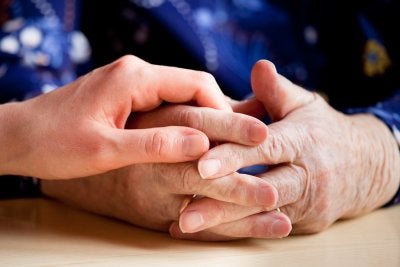-
Identifying Common Post-Operative Challenges
Senior assisted living services are often utilized when a loved one is in declining health, but it’s also a good idea to hire an in-home caregiver in Memphis when a loved one is discharged from the hospital after surgery. This is known as transitional care because the patient is transitioning from hospital care to assisted living care at home. An assisted living provider can help recovering patients with a wide range of post-operative challenges.

Medication Management
After an operation, there may be a number of different medications that a patient might need to take. Typically, post-operative patients take antibiotics and narcotic pain relievers, followed by over-the-counter pain relievers as healing progresses. Some patients might also need to take blood-thinners to reduce the risk of blood clots in addition to their normal medications. It can be a challenge to juggle all of these pills. An in-home caregiver providing transitional care can help patients manage medications by providing medication reminders. This prevents the possibility that a patient might accidentally skip a dose or take an extra dose.
Personal Hygiene
Some surgeries are minimally invasive and may only impose minor limitations on movement. Other operations require a large incision, which can significantly interfere with a patient’s mobility and self-care abilities, particularly if the patient wasn’t in good overall health before the surgery. A transitional care provider may be essential for the patient’s hygiene. Caregivers can assist patients with bathing, dressing, grooming, and toileting, among other routine tasks.
Household Upkeep
For a healthy recovery from surgery, it’s essential to follow the doctor’s post-operative instructions carefully. Usually, these instructions will include limitations on heavy lifting, bending over, and any other strenuous activities. Housekeeping tasks will certainly be out of the question for recovering post-op patients. This is another major benefit of working with a transitional in-home care provider after surgery; all of these tasks can be taken care of by a professional.
Meal Preparation
Balanced nutrition plays a crucial role in the healing process, yet it’s usually difficult for post-operative patients to prepare their own meals. Rather than relying on unhealthy take-out food or premade, frozen meals, patients can enjoy nutritious and delicious homemade meals prepared by an in-home caregiver.
-
Anticipatory Grief: Understanding Your Emotional Needs
The families of loved ones who are terminally ill already know all too well that the grieving process begins before the death occurs. But anticipatory grief is not as widely acknowledged and so families may not take the time that they need to acknowledge their own emotional needs. It’s important for families to reach out for help when needed. A caregiver agency near Memphis can provide in-home hospice care to help families focus on their emotional and spiritual needs.

Understanding Anticipatory Grief
Anticipatory grief shares many of the same characteristics as grief after a loved one has passed. Some individuals describe feeling as though they’re losing their minds or can no longer think clearly. Anticipatory grief encompasses anger, sadness, loneliness, depression, and guilt. It can also bring feelings of fear, fatigue, and emotional numbness. It’s important to understand that there is no “normal” way to grieve for someone who hasn’t yet passed on; everyone will have a different experience. It’s not uncommon for individuals to imagine what life will be like after the death; some may go as far as to imagine what they will do with the person’s possessions or with the family home. These thoughts should not be interpreted as indicating callousness. They are simply the mind’s way of trying to cope with an unimaginable situation.
Identifying End of Life Services
During such a difficult time, your family needs elder care services more than ever. At this stage, these services are known as end of life care or hospice care. While many individuals feel that they ought to provide all of the care themselves, this is often not practical and it can detract from the process of saying goodbye to the dying family member. Instead, hire a hospice caregiver to provide services such as personal hygiene tasks and light housekeeping. You owe it to yourself to give yourself a break.
Saying Goodbye Without Regrets
Ask yourself if you will have any regrets when your loved one is gone. Many people regret never truly saying goodbye or making amends for past conflicts. When the dying person is a parent, many adult children regret never reassuring him or her that they will take care of the surviving spouse. Spend time with your loved one in quiet reflection, share treasured memories, and say goodbye without regrets.
-
A Look at Our Approach
The team at Caring Companions has been caring for elders in Memphis and the surrounding areas for more than 14 years. Our mission is to improve quality of life for the families that we work with. The work that we do is much more than a job; our caregivers view elder care as a ministry of service to others.
When you watch this video, you’ll hear from Renee Smith, the owner of Caring Companions, who explains our respite care services available to family caregivers. You’ll also hear from one of our in-home caregivers and from a family who is receiving services. Our in-home care services provide so much more than just practical assistance; they also offer loving kindness and companionship.
-
The Importance of Hospice Care for Patients and Their Families
When diagnosed with a limited life expectancy, patients, as well as their families, are left with decisions to make about end of life services. If you’re considering hospice care near Memphis , it’s vital to understand how this service can help patients and their families.

For Specialized Care
Hospice care providers are uniquely equipped with the knowledge and skills needed for helping terminally-ill people feel more comfortable and at ease during their final days. The support that these providers can lend can make the end of life process easier on both the patient and his family. When you and your loved one choose to benefit from hospice care, this prevents complications associated with overtreatment at this stage in the patient’s life. Additionally, hospice providers can help patients and their families cope with the final stages of life.
For Personal Assistance
When a patient is considering hospice care, they may be worried about the help they will require in their final days. Opting for specialized end of life care can help patients and families enjoy more time together. Caring for a sick individual can be time-consuming and exhausting, as well as stressful. Hospice care providers can help by providing assistance with light housekeeping, laundry, food preparation, and personal hygiene. These services allow family members to take a break from their caretaker duties and spend more quality time with their loved ones during this emotional period.
For Quality Time
Making patients as comfortable as possible during the final stages of life can help them feel less fearful about the dying process and ease some of their stressful emotions. Hospice care providers are skilled at helping patients who are terminally ill, and can be prepared for situations that family members may not be prepared to handle. Hospice care enables families to enjoy more of their remaining time together by experiencing less stress and worry. When family members feel confident that their loved one received quality care in his last days, the grieving process can be less painful and confusing, making the transition easier for all involved.
-
What to Do When Family Members Disagree About Transitional Care Plans
When your senior loved one requires assistance after an illness or medical procedure, the stress of making decisions and planning for their needs can be difficult for your family. When deciding on transitional senior care services serving Memphis, there are a few things you can do to help the planning process go smoothly among your family members.

Begin preparing and reach a decision as quickly as possible.
Starting the planning process early is one of the best things that you can do to make the transition to in-home care less stressful for all involved. If your family members are in disagreement about the best strategy for providing your senior loved one with help, starting early and working continuously to make a decision is ideal. Once you realize that your loved one may need help at home, begin the discussion and talk with your family until you can reach a conclusion. Doing this can help you avoid being left without a plan or many options once your loved one is ready to come home.
Explain to your family that change is necessary.
In many cases, families disagree about assisted living options because they dislike the idea of someone that they don’t know caring for their loved one. Making it clear to everyone why your loved one needs help and why you and other family members might not be able to provide her with everything that she needs during this period can help those in disagreement gain a better understanding of the situation.
Compare the benefits of different transitional care plans.
There are many types of elder care programs available, and choosing the one best suited for your loved one can be challenging. First, speak with the senior to determine how she feels about having assistance at home. Next, talk to her doctors to learn what she will require help with during her recovery time. Once you know what needs will have to be addressed, you and your family can discuss transitional care plans with a better understanding of what support your loved one requires during this critical time.
-
Knowing What to Expect When a Loved One Reaches the End of Life
When you have been advised that a loved one is nearing the end of his or her life, it’s natural to wonder what the future holds. Fortunately, in-home hospice care can be extremely comforting for both you and your loved one, as an experienced end-of-life caregiver guides you through the process and helps you understand what to expect. Here are some of the symptoms you may see in your loved one while he or she is receiving end-of-life care in Memphis .
rst
Fatigue
Fatigue can be overwhelming at the end of life. Your loved one may be unable to take part in any activities that require physical exertion and may struggle to hold long conversations, read, or watch television without sleeping. When your loved one does have energy, plan activities that make the best use of that time, even if it means simply sitting together and having a long talk. In very late stages, your loved one may appear to be asleep or in a coma and unable to speak at all. However, he or she can still hear you, so continue to talk to your loved one. Your hospice care provider can help you recognize the signs that your loved one’s fatigue is becoming overwhelming.
Shallow Breathing
At the end of life, breathing becomes slow and shallow, and there may be periods where your loved one sighs or takes a deep breath and then doesn’t breathe again for a few beats. This kind of shallow breathing is normal. Turning your loved one on his or her side can be helpful. Generally, people who are experiencing this shallow breathing are not uncomfortable. Ask your hospice caregiver for advice of you believe your loved one is suffering, as a doctor can treat this symptom to increase your loved one’s comfort.
Decreased Need for Food and Water
It can be scary to watch your loved one eat and drink less, but resist the urge to force food or water. Give your loved one easy options, like ice chips and soft, easy-to-digest foods. Dehydration is common when your loved one’s appetite declines. Keep his or her lips and mouth moist with glycerin swabs and lip balm.
-
Comparing Hospice and Palliative Care
Are you deciding between palliative care and hospice near Memphis ? There are differences between these two options, and it is important to be fully informed before you make these decisions for yourself or a loved one.
Hospice care programs are generally administered by professional care providers in a patient’s home. However, some hospice programs do take place at caregiving facilities. With hospice, it is important to have family support, as well. A professional caregiver can provide support as a visiting hospice nurse. A professional caregiver may also offer more comprehensive care, depending on a family’s needs and availability. But by the time patients need hospice care, they have progressed to the point where they need constant assistance and support. Conversely, palliative care teams are directed to end-of-life care. Patients requiring palliative care generally need more medical support than a hospice care patient, who may not be struggling with a particular illness. Palliative care relies on teams to administer medicine. Therefore, palliative care is usually administered at a professional facility or hospital. An institution like a nursing home or senior assisted living facility is also ideal for different kinds of palliative care.

-
Tips for Teaching a Senior Loved One to Use Technology
Elder care in Memphis is dedicated to even more than health care support and companionship . As you will learn in this video, teaching your senior loved one to use technology can offer invaluable support, helping to improve his or her quality of life tremendously.
An assisted living facility prioritizes teaching seniors how to use technology. Seniors are often ill-equipped to navigate the Internet or use new cell phones, which is why a caregiver agency places so much importance on technology. As an assisted living aide knows firsthand, knowing how to use a cell phone can be the difference between life and death in a health emergency.
-
What Is End-of-Life Care?
When a loved one is first diagnosed with a serious illness, it’s common for families to meet with specialists, explore treatment options, and consider clinical trials. At a certain point, healthcare providers may inform the patient that the treatments aren’t working and that he or she is not a candidate for other curative options. This doesn’t mean that the patient will no longer receive care; however, services will transition from curative treatments to palliative care. End-of-life care is often provided by Caring Companions in Memphis, who may be working in conjunction with a hospice care program.
Care Team
An end-of-life care team is typically comprised of many different professionals. A patient may have elder care companions who provide services such as light housekeeping, meal preparation, companionship, and personal care. Nurses from the hospice care program can visit the patient’s home to assess his or her needs and determine how to improve quality of life . The hospice team may also include social workers, trained volunteers, spiritual counselors, or members of the clergy.Palliative Care
The hospice care team provides palliative care, which can take many different forms. Palliative care does not focus on treating the condition; rather, it is intended to manage symptoms to provide greater comfort at the end of life. A nurse can help the patient manage his or her pain and other symptoms. He or she may provide prescription medications or medical supplies for symptom management. For example, if a patient can no longer get out of bed to go to the bathroom, the nurse can insert a catheter that will stay in place and drain into a special bag.Family Support
 An important component of end-of-life care is support for the whole family. A hospice care team can offer the family practical assistance and psychological counseling. For instance, a hospice nurse can instruct family members on how to properly set the controls on oxygen therapy equipment, how to lift and transfer the patient, and how to administer medications. A spiritual or psychological counselor can be there to offer emotional support to family members as they struggle to cope with anticipatory grief during their loved one’s illness and the grieving process after the passing.
An important component of end-of-life care is support for the whole family. A hospice care team can offer the family practical assistance and psychological counseling. For instance, a hospice nurse can instruct family members on how to properly set the controls on oxygen therapy equipment, how to lift and transfer the patient, and how to administer medications. A spiritual or psychological counselor can be there to offer emotional support to family members as they struggle to cope with anticipatory grief during their loved one’s illness and the grieving process after the passing.
